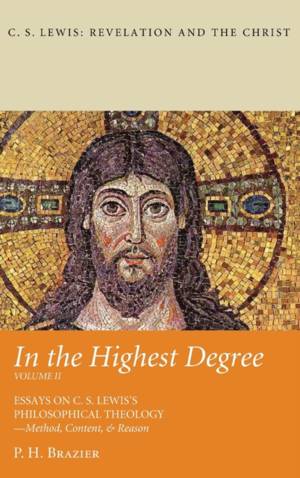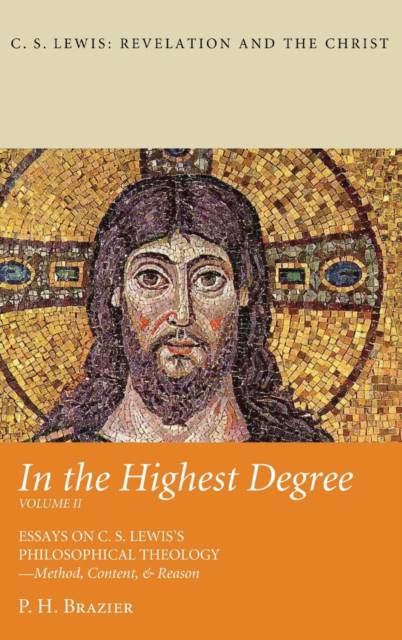
- Retrait gratuit dans votre magasin Club
- 7.000.000 titres dans notre catalogue
- Payer en toute sécurité
- Toujours un magasin près de chez vous
- Retrait gratuit dans votre magasin Club
- 7.000.000 titres dans notre catalogue
- Payer en toute sécurité
- Toujours un magasin près de chez vous
Description
The theological and philosophical works of C. S. Lewis were grounded in the argument from reason (being a form of revelation that predates nature and relates to the divine; i.e., the Word of God, Christ the Logos). These essays provide some understanding of the essentials to Lewis's philosophical theology--that is, the essentia, ""in the highest degree."" Lewis's corpus can seem disparate, but here we find unity in his aims, objectives, and methodology, a consistency that demonstrates the deep roots of his philosophical theology in Scripture, Greek philosophy, patristic and medieval theology, and some of the Reformers, all framed by a reasoned discipline from a perceptive and critical mind: method and form, content and reason, for the glory of God. From an analysis of reason to the evidence of Christ as the light of the world across human endeavors and religions, a doctrine of election, and an understanding of Scripture (""the Philosophy of the Incarnation,"" as Lewis termed it), in fundamental arguments with various modern/liberal theologians, we find evidence for the actuality of the incarnation: the divinity of Christ. ""For many years, Paul Brazier has made a significant contribution to the advancement of C. S. Lewis studies. . . . In this, the second volume of his collected essays on philosophical theology, Brazier brings together six of his writings, five of which having been previously published, while one, on the doctrine of election and predestination, is entirely new. Students of Lewis's theology (broadly considered) will be grateful that these informative essays are now available in a single two-volume source, which collectively comprise one of the most detailed attempts to address this critical area of Lewis studies."" --Grayson Carter, Fuller Theological Seminary ""C.S. Lewis's writings are as numerous as they are deep, full of references to classical writers and ideas unfamiliar to most moderns. Brazier properly situates Lewis's articles within their historical setting, identifies the key issues, and carefully evaluates Lewis's thought. Theologians wrestling with concepts of sensus plenior, story and myth, the incarnation, unity of the triune will, and free-will and predestination should not ignore this book."" --Stephen M. Vantassel, King's Evangelical Divinity School, Broadstairs, UK P. H. Brazier is an independent theologian and scholar living in London. He holds degrees in Fine Art (BA), Education (MPhil), and Systematic Theology (MA and PhD). Paul has published widely in theology and philosophy, including an in-depth systematic analysis of C. S. Lewis's theology; he has also published on Fyodor Mikhailovich Dostoevsky, Karl Barth, and Colin E. Gunton. A retired teacher, the author is caregiver for his wife, Hilary, who has severe epilepsy.
Spécifications
Parties prenantes
- Auteur(s) :
- Editeur:
Contenu
- Nombre de pages :
- 234
- Langue:
- Anglais
- Collection :
Caractéristiques
- EAN:
- 9781532658891
- Date de parution :
- 31-10-18
- Format:
- Livre relié
- Format numérique:
- Genaaid
- Dimensions :
- 152 mm x 229 mm
- Poids :
- 485 g







